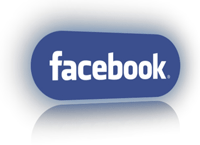
Like it or not, the world wide web has become a cornerstone of ‘who you know’ in the 21st century. Facebook has become extremely popular over the past four years and a must-have in every marketing mix. It can connect a willing public with a brand, or a band or artist they love. Facebook has become a go-to place for would-be fans to find out what their favorite artists are doing. Its integration with the burgeoning mobile marketplace, showing up on almost every new cell phone model from the Android to the iPhone, makes it even more important.
Profiles vs. Pages
Even if your band has already joined Facebook, there are a few things you should know. There are two different kinds of outlets available to you as a user. The first is known as your Facebook profile, which includes personal updates and links to the people you know. The second is what Facebook calls its pages, and this is where you will need to do most of your marketing.
The Problem With Profiles
Facebook profiles are the default area where you are taken when you first join the network. If you look at Facebook’s Terms Of Service you’ll see a lot of stern language about the type of activity that is forbidden for any profile owner. Most of the activities that you would intuitively do when you first set up a band profile are clearly forbidden and punishable by account termination. This can be disappointing when you have invested time and money into building your audience.
Some of the primary behaviors that are technically not allowed on a profile are:
• Requesting to be friends with someone you don’t personally know
• Posting “Unauthorized Commercial Communications” such as status updates or Direct Messages
• Posting offers about contests, giveaways or promotions
• Using your personal profile for your own commercial gain
Problems can arise when clients log into their own profiles and unknowingly violate a term or condition, resulting in termination of an account.
Facebook Pages For The Win
As Facebook expanded its business model and dealt with the reality that marketers belonged on the network as much as fans did, Facebook pages were created. These pages are meant specifically for commercial entities (in our case an artist or band) to post brand-specific information to users that become a fan of the page. This gave Facebook a way to offer a voice to brands, but keep unwanted promotion away from unsuspecting users. This is an area where MySpace failed and managed to lose a huge portion of the social networking audience.
The ability to add content to a Facebook page is similar to that of a Facebook profile; you can add information about your band, photos, status updates, news, events and more. The real power of Facebook comes in the applications that can be added to your page, which allow your visitors to interact and bring a part of your band to their own profiles to share with friends and family.
Applications For Everything
Some might argue that the key to Facebook’s success has been their open-source philosophy, which allowed developers and entrepreneurs to bring their own functionality to the network. There are apps ranging from music and video tabs to gift-giving applications and more. There are new applications being made available to the network on a daily basis. Some of the most utilized applications for bands/artists include:
 My Band—An application powered by ReverbNation, which is an extremely useful social network, specifically for music fans.
My Band—An application powered by ReverbNation, which is an extremely useful social network, specifically for music fans.
 iLike & Music—Both of these applications are available from the iLike network. The Music application enables you to post a miniature website within your page containing art and other music-related content.
iLike & Music—Both of these applications are available from the iLike network. The Music application enables you to post a miniature website within your page containing art and other music-related content.
 Twitter—This application allows you to connect your Twitter account with your Facebook account so that your Tweets get broadcast to your Facebook fan base.
Twitter—This application allows you to connect your Twitter account with your Facebook account so that your Tweets get broadcast to your Facebook fan base.
 Artist Data Sync—This isn’t really an application in the sense that it is added to your page, but this website (artistdata.com) can sync to your events and status updates on Twitter, Facebook, MySpace, Eventful and many other websites.
Artist Data Sync—This isn’t really an application in the sense that it is added to your page, but this website (artistdata.com) can sync to your events and status updates on Twitter, Facebook, MySpace, Eventful and many other websites.
Custom Applications—You may have a great marketing idea that requires tools not yet available through other applications. There are a number of qualified web development companies that can build a custom application tailored to your needs.
You can’t depend on your lukewarm fans to regularly visit your official website to take advantage of the experience you have built for them. This is why it is important to deliver the same functionality to your users on Facebook. They are much more likely to share the experience with others if familiar tools such as Facebook’s ‘like’ and ‘share’ functions are just a click away.
Location, Location, Location
There are a number of ways that someone might find your Facebook page. These include:
Direct Link: It’s important to link to your Facebook page from your official website, your email campaigns and even on your business card. The people being referred by another marketing channel are already primed to become a fan on Facebook.
Search: Facebook has its own search engine, but other engines such as Google, Yahoo and Bing are indexing Facebook page results. It’s important to greet the fan with relevant information about your group and offer clear information that they have come to the right place. Some artists may include imaging that isn’t congruent to the artist Website or album artwork. In this case, a visitor may be hesitant to ‘become a fan’ if they aren’t sure they are on the right profile. This is especially true when considering a profile image that appears in the results of a Facebook search. You don’t want people to find your profile in the search, rather you want them to find your fan page. When you end up with 1,000 profile friends and 50 fans on your fans page, you’ll be kicking yourself because you’re limited as to what you can say and do on your profile. Be extra careful not to choose any settings that keep your page from appearing in search results.
Referrals Within Facebook: The ability for users to ‘like’ and ‘share’ content on Facebook make it easy for User A to see content that User B is interested in. Picture this: You’ve just released your new EP and issued a status update on Facebook. User A comes along and decides to ‘share’ the news with their friends. All of User A’s friends will be able to see that they have shared the news and can come see the news for themselves within one click. In addition, when someone ‘Becomes A Fan’ of your page the news is sent to all of their friends. It is very important to tap your current fan and business acquaintances and encourage them to ‘Become A Fan.’ When they do, all of their friends will know about it.
Facebook Ads: You’ll have to spend some money, but Facebook advertising campaigns can yield a high number of fans if done correctly.
Facebook Events: This is a kind of guerrilla tactic, but a number of people use Facebook’s event listing to find out about events going on in a specific city or at a specific venue. Ensure that all of your appearances (public and private) are listed on Facebook, including details about the gig.
Keeping Content Fresh: To ensure that your page stays relevant, you need to keep the content fresh and engaging. It’s important that you assign an administrator (or multiple administrators) to your page so that the right people have access to update your information. If you are out on the road, then you need to appoint someone that takes the job seriously so that correspondence gets answered quickly and information is updated in near real-time. Make sure that you always have fresh content available, such as videos, status updates, event listings, photos and much more to keep your name appearing in the feeds of your fans and followers.
Tracking Results: Facebook offers a simple platform that is tethered to all pages and gives information on the number of visitors, demographic information, and even the quality of the postings that are being made. It’s important to pay attention to this information and utilize it where appropriate. When posting links, there is a useful link service called bit.ly (http://www.bit.ly) which allows users to track the number of clicks the link has received. There are other tools available, many at a paid premium, that give you details about your fans and the way they are interacting with your page, but these may not be necessary or appropriate for most artists. Another way to gauge success is to probe the analytics engine of your official website to see how many visitors are coming to your site via Facebook and what exactly they are doing when they get to your site.
Facebook Finale
It may seem a daunting task for a musician to successfully exist on Facebook, but most will find it very easy once they have spent some time interacting with users. The important thing to remember is that there is help available and a number of professionals that can be called upon if you find yourself struggling to maximize your success. Remember, Facebook is not a one-way communication tool. You must allow your fans to communicate with you and be prepared to treat them like the people they are. It’s often better to have 100 dedicated fans that have a sense of ownership in your band than 1,000 mediocre fans that know you only as a contact through Facebook.
• • •
 Jon Walker is a Nashville native, with a degree in Music Business Marketing from Belmont University. He joined the AristoMedia group in 2003. Jon’s affinity for technology and experience with entertainment marketing gave birth to AristoMedia’s, new media division—AristoWorks. Since 2005, AristoWorks has developed web applications and online campaigns for numerous major and independent label projects including various applications for MusicRow Magazine. (jon@aristoworks.com)
Jon Walker is a Nashville native, with a degree in Music Business Marketing from Belmont University. He joined the AristoMedia group in 2003. Jon’s affinity for technology and experience with entertainment marketing gave birth to AristoMedia’s, new media division—AristoWorks. Since 2005, AristoWorks has developed web applications and online campaigns for numerous major and independent label projects including various applications for MusicRow Magazine. (jon@aristoworks.com)

Category: Featured, Sales/Marketing



